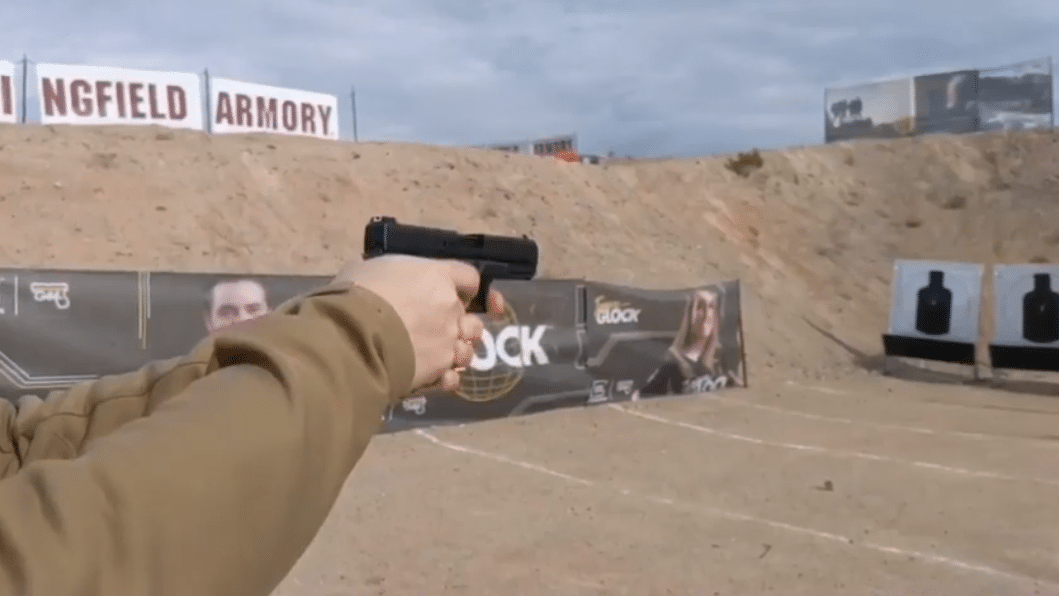
It really is too bad that Glock already consumed the model designation “22” in 1990 with the release of the Glock 22. Being a full sized frame variant of the famous model 17 (circa 1988) chambered in 40 S&W. Fast forward a scant 30 years and we see the release of the Glock model 44 chambered in 22 LR. The same missed opportunity for synergy goes down like the Glock 45 chambered in 9 MM and the Glock 40 chambered in 10 MM.
Glock has a well deserved reputation for innovation and reliability. They are also in a position to use their prowess and capability to stand the entire concept of a pistol on its head, again. The industry is ready for something like they saw in late 80’s. With their plastic frames and a design that has been built upon ever since.
Leading up to the 2020 release, as is typical of the industry, the hype and marking machine speak of “something new” coming from Glock. There was much teasing and build up starting mid 2019. The Glock 44 is billed as the next big thing. When unveiled and it is as a Gen 5 compact frame chambered in 22 LR the online reaction oscillated between let down and confusion.
Being open to new ideas, our initial judgment was withheld. The concept was studied and considered. Admittedly, it is a nice idea and it might have a place. Picture range day, with just one of those spiffy Glock factory cases. Inside is a Gen 5 model 19 and a Gen 5 model 44. Ammo needed is just a box of 9 MM and a couple bricks of 22 LR.
Spend a morning working on fundamentals of pistol marksmanship with the cheaper 22 ammo. Associate each pull of the trigger with only the recoil of a pea shooter. Then finish with some 9 MM to apply and gauge effectiveness of the training session. Since the ergonomics of the 22 LR pistol match the 9 MM. There are no training barriers to overcome or changes to manipulating the pistol. No recoil induced bad habits have been introduced. All this without even the need to change a holster.
However, does the experienced pistol shooter and long time Glock customer really need this? Consider an every day carry Glock 19 Gen 3. It has a couple of million miles on it and it is just starting to break in really nice. The user might have elected to skip a Gen 4 upgrade for a few reasons. The biggest of which is likely the fact that there is nothing wrong with the tool that they already had.
Also consider something like the Ruger Mark III pistol in 22 LR. There are also millions of these in circulation. Most fill the role of the fun gun on outings or range day with newbies. That newbie will often shoot a couple magazines though it. Then when asked if ready for something bigger, they give the affirmative and rarely look back.
Now after producing millions and millions of pistols, four previous generations, for 30 years. Glock has done a good job meeting the needs of experienced shooters. So the target audience to really jump onto the Glock 44 and maximize on this nice idea, are really going to be new shooters. While the new and inexperienced should be welcomed and given tools to succeed. Glock gave little consideration to their existing user base. Proof of this is seen in the feature set of the launch.
The Glock pistol mag is considered an icon. They are bomb proof, feed well, and set the bar for what a standard capacity magazine should be (15 rounds on a standard G19 mag). This is one reason why you see it cloned, often poorly, by other manufacturers. The form factor is often used in everything non-Glock. From the pistol caliber AR to something like the KelTec Sub2k.
However, the initial 44 release only sees a single stack 10 round mag with a new first, a thumb assisted follower. While Glock reports they are working on a higher capacity variant. It’s worth noting the physical area occupied by a G19 magazine (15 rounds of 9 MM). Will physically hold upwards of 30 rounds of 22 LR. There was no attempt shown to improve upon that round count. This really only keeps that “nice idea” afloat for the new shooters. There is a lot of room for innovation in this area but Glock chose not go above and beyond their competition or serve the more seasoned shooter.
Staying on theme, the rest of the unexciting initial release has no skus with barrel threading, Again, Glock reports that they will have one, but they are not on shelves today. There is no MOS (Modular Optic System) support. The only sighting system supported in the classic polymer sights with no enhanced options offered. Understand that with the slide top being polymer Glock only recommends polymer sights as installing metal ones might damage that polymer. While these issues might be resolved in future releases or in aftermarket. No attempt has been made to compel existing customers.
As expected, range time spent with the model 44 reveals that it is fun, just as expected. The lighter slide is easy to articulate, the magazine is easy to load. Ergonomics aside, the behavior of the polymer steel hybrid slide performs like any other blowback 22 LR. However it still manages to leave the shooter wondering where the innovation is. It is not found in the features, design, or performance. While there are some shooters who will benefit from his nice idea. It is simply too little too late for the majority.
Video by Mike Kovacs
